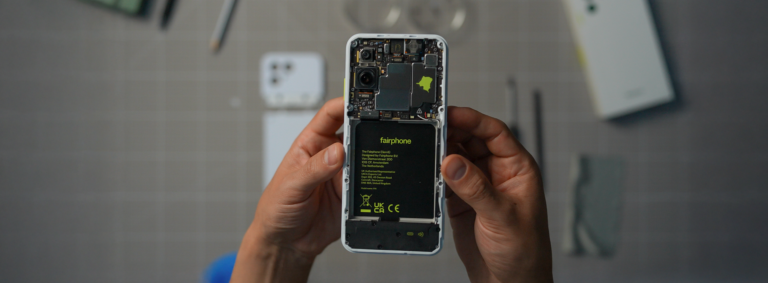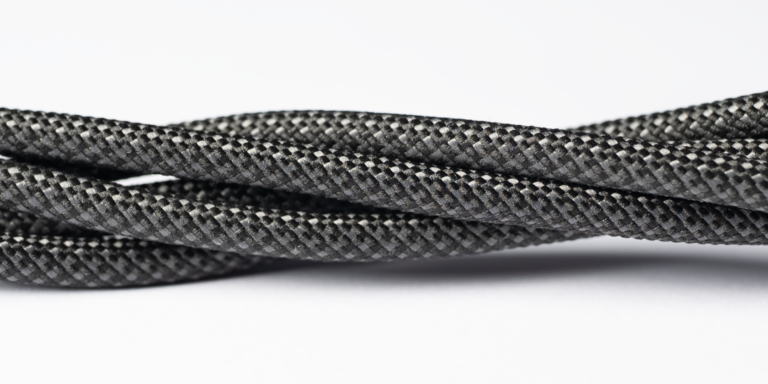Fair Tungsten: From conflict-free to building community
Studies show we’re making an impact in Rwanda
In the north of Rwanda, near the city of Kidao, one of the country’s oldest tungsten mines is proving us right.
Fairphone started out as a campaign to prove the phone industry could stop using materials that finance conflict and human rights abuses. That we could support conflict-free materials sourcing. Today, we’re excited to be focussing on going “beyond conflict-free.” We don’t want to simply certify that we’re not putting money in the pockets of thugs, but to really ask whether a mine is improving the lives of its miners, reducing its environmental impact, and strengthening its community. We believe that raw material suppliers and purchasers, and every actor in the entire supply chain for modern phones, can wield their purchasing power to improve the health, safety, and working conditions for millions of miners and their families around the world.
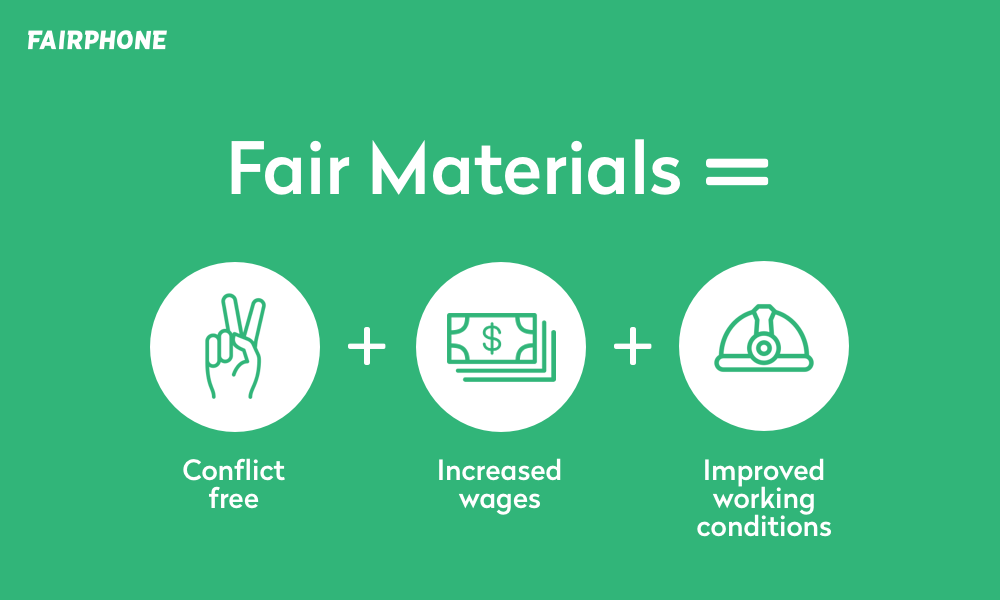
The New Bugarama Mine has been one place we’ve been testing that idea. The mine owners, the smelter that buys from them, and Fairphone itself have been cooperating to improve the mine’s management and operations. We and our partners were keen to evaluate the impacts we were having, and look for ways to improve. We’re proud of two new reports that we jointly commissioned to independently evaluate the New Bugarama Mine’s treatment of workers, impact on the environment, and role in the community.
When Fairphones buzz, they buzz fair
We use tungsten in the vibration motors of all our Fairphones – it’s the thing that makes them buzz when plugged into power or to alert you to incoming messages. Back when we started building the Fairphone 2, it would have been easier to source conflict-free tungsten from Portugal or the United Kingdom. We chose instead to transform and improve sourcing from the African Great Lakes Region, where genocide and war had ravished the region. The New Bugarama Mine had been almost completely destroyed during Rwanda’s genocide in the 1990s, and had for some time been run illegally as an extremely unsafe artisan mine. But in 2009 The New Bugarama Mining Company (NBM) took over, and set out to improve a chaotic situation.
From war-torn and unsafe to award-winning
When we visited the area in 2014 conditions had markedly improved. That year, NBM was named as the best company in terms of corporate social responsibility in Rwanda.
We began conversations with smelters and miners and NBM’s main shareholder, Specialty Metals Resources (SMR) about sourcing fair materials. We partnered with Wolfram Bergbau und Hütten AG (WBH) which in April 2015 successfully passed the audit of the Conflict-Free Smelter Program. Both partners invested heavily in safety equipment, infrastructure, and training. They transitioned the mine from entirely manual labor, introducing mechanizations that had a direct impact on overall productivity and average income per miner. This also meant NBM now had a sustainable income to invest in continuing health, safety, infrastructure and other improvements. They put audit systems in place to guarantee no financial “leakage” to armed groups.
Beyond conflict-free
Levin Sources, an independent social enterprise consultancy, visited the mine in 2021 to assess the impacts of NBM’s transition from a fully manual-labor Artisan small mine to a semi-mechanized mine site. Their findings are contained in two reports, Case Study: Learnings From the New Bugarama Mining Company’s Progress Journey and the Beyond Conflict-free Tungsten report.
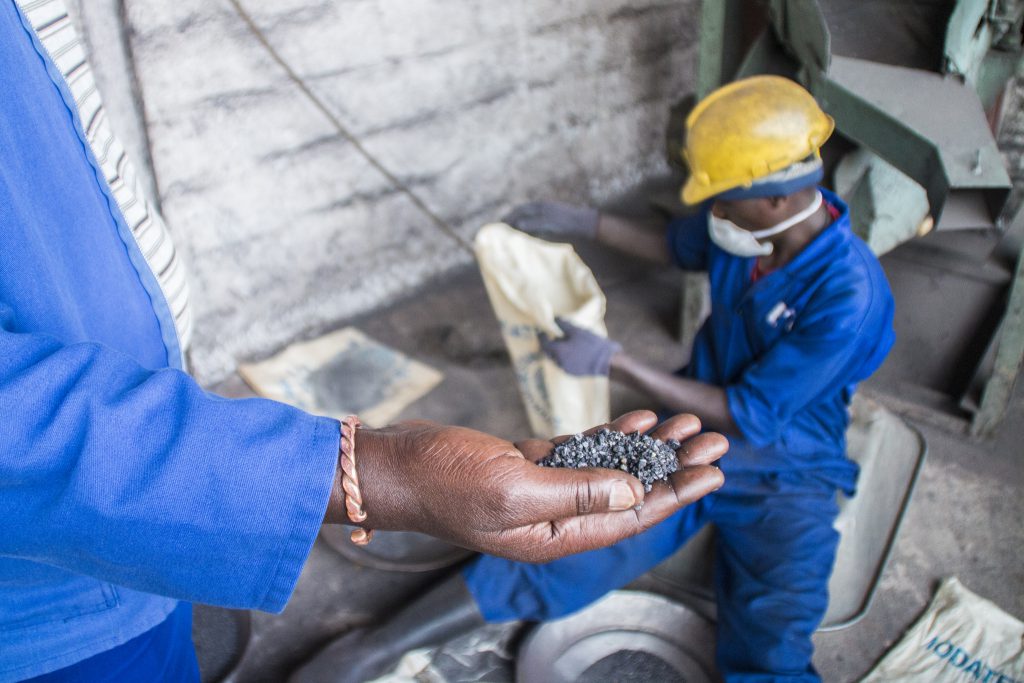
Levin Sources found benefits that go beyond ensuring the mine site is conflict-free. They include improvements in working conditions and health and safety, reduced environmental pollution, improved education and professional development, local added value and socio-economic contribution, and community and stakeholder engagement. In other words, efforts to engage in improvements are making a positive impact. It’s what we call fair: when communities that are providing raw materials to make our phones tangibly share in the benefits.
NBM has been improving general working conditions by providing formal contracts and reimbursing health care costs and building safer tunnels. They’ve also made directed efforts to address gender equality at the mine, supporting the presence of women in technical roles and providing a nursery to accommodate breastfeeding. The presence of women in technical roles was also reported by communities as having a positive impact on girls from surrounding villages, as they see women working at the mine in more specialised roles.
Investments in water recycling systems, waste management, tree planting, and replacing diesel generators with grid-powered ones have reduced negative environmental impacts and emissions. Contributions to education both in the mine — especially in the area of health and safety — and contributions to community education were noted. Most miners’ children now attend school regularly, and miners can afford books and fees. The report also found that the company is hiring locally, so spending goes back into the community. NBM is also nurturing relationships with local authorities, building partnerships and creating channels for stakeholders to raise concerns and make recommendations.
The report also observed some areas where things could be better. For instance, miners could be better informed about potential diseases and health risks such as diabetes, high blood pressure, non-transmissible diseases and sexually transmitted
diseases. Management should continue efforts to emphasize the importance of personal protection equipment. And while miners are learning new skills through the company’s training programmes, the acquired skills are not always officially recognized.
In keeping with our Fair Sourcing Policy’s principle of continuous improvement, NBM and project partners will take these into consideration. We also aim for more regular monitoring of the mine’s impact to ensure an accurate overview of improvement, benefits, and negative impacts alike.
Conclusion: small is beautiful
Together, the report and case study tell us that we can deliver significant environmental and social benefits to war-torn areas and communities by investing in artisanal small mines (ASM).
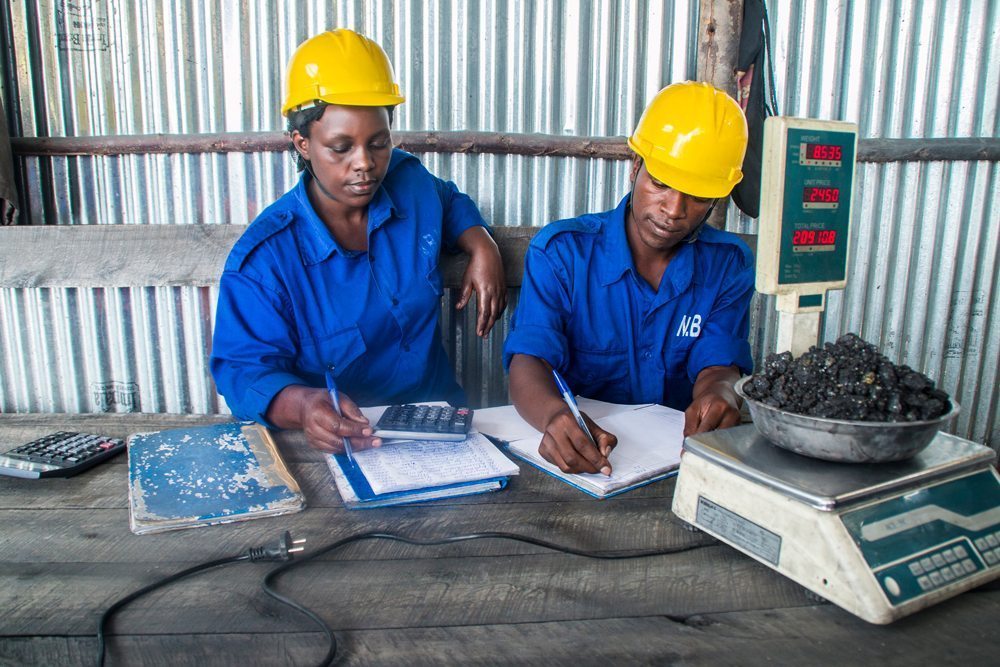
As we point out in our “Fair Materials 101” series, many companies won’t buy from ASM due to fears of being associated with conflict and unfair practices. But by not investing in these small-scale mines, which employ many millions more people than large-scale mines, we can push them even further away from environmental and social responsibility. Prioritising engagement over exclusion strategies builds trust, improves lives, and strengthens communities. It can inspire downstream purchasers to invest in legitimate and responsible mines. And with the kind of recurring impact monitoring that NBM and WBH are considering, the industry can bring new transparency to the supply chain, and use it to make real and lasting improvements in more mines around the world.
Tungsten purchasers need to stop boycotting historically conflict-impacted communities and small mines, or looking no further than conflict-free certification. Truly positive impacts require commitments across the supply chain — from the ground up. That’s what we call fair sourcing.
At Fairphone, we take care to ensure that the money we pay for the buzz in your pocket goes back to the communities that help make it. We invite more in our industry to do the same. Ultimately, that’s only fair.


